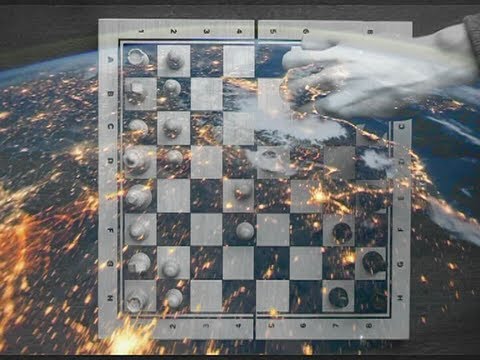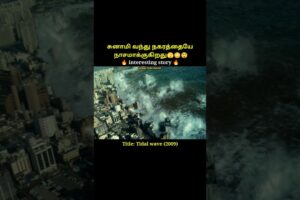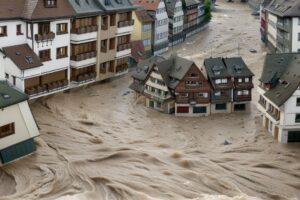
‘””””If you like this video, please subscribe the channel!””””
Feature documentary “Crash of Systems” is a kind of cinematic study on the three main Systems which were born centuries ago and are still dominating but now malfunctioning in contemporary world. They are, “Capitalism”, “Democracy” and “Military” systems.
They are, of course, not U.S. specific, but they have been more extensively argued, advocated and penetrated into people’s mind through moving images in USA than in any other developed countries. So here the author chose for the creative interpretation and analysis mostly American newsreels, instruction and propaganda films, advertising films( they served as a part of “official discourses” of Systems ).
Through the analysis of such moving images in the form of “montage film”*, author tries, not to represent “alternatives” to existing systems, but to invite the viewers to historical rethinking what seems to be “a matter of course”.
The film also contains recent interviews of American journalist, scholars, and citizens. These materials( licensed by RT), serve as a kind of comments on each topics represented by archive materials, belonging to public domain.
(75 min.)
Subtitles(CC): Spanish, Portugués, Italiano, Deutsch, Francés, svensk, Русский, Polski, 中国語(簡体), 中国語(繁体), 한국어, Melayu, العربية, हिंदी., Pilipino etc.
Production company :Alt-arts LLC
Director: Shusei Nishi
You can download the film: http://t.co/rqdYWTHqMF
(Prologue) 00:10
Questions to be answered 00:38
(Title) 02:10
Capitalism and Democracy 02:17
(on capitalism) 02:22
(on democracy) 08:43
Anthropology of War 19:48
(interviews, Brian De Palma and David Robb )22:07
Conspiracy and History 26:11
Systems and Societies 28:26
(behind “help for post-war reconstruction”)
Fear, Lies and Administration 31:45
(On official discourses during Cold War )
Produce and Consume(1) 39:47
(interview, J. Stiglitz ) 46:42
Produce and Consume(2) 48:17
(interview, Mark Crispin Miller ) 51:51
(interviews & reportage about 9.11 truth movement ) 53:09
Systems and Human Factors(1) 56:15
(interview, I. Wallerstein ) 57:39
…some of which may be far worse than capitalism
(That’s Fascism) 59:00
The beginning of Modern Military System( Systems and Human Factors(2) 1:03:14
Things To Come 1:05:15
Unfinished Project 1:07:19
(interview, Ugo Chavez) 1:07:58
(Last credits:List of cited films and music etc.)1:13:25
Music and other sound materials used in this work belong to two different categories: Creative commons 3.0 Attribute and Public Domain.
All interviews are excerpts from the materials made and provided by RT.
Below is the complete list of music pieces:
“Scissors” by Kevin MacLeod, licensed under a CC Attribution 3.0.
http://incompetech.com/music/royalty-free/index.html?isrc=USUAN1100781.
“Monkoto”by Kevin MacLeod, licensed under a CC Attribution 3.0.
http://incompetech.com/music/royalty-free/index.html?isrc=USUAN1100432.
“Arid Foothills” by Kevin MacLeod, licensed under a CC Attribution 3.0.
http://incompetech.com/music/royalty-free/index.html?isrc=USUAN1100437.
Artifact by Kevin MacLeod is licensed under a CC Attribution 3.0.
http://incompetech.com/music/royalty-free/index.html?isrc=USUAN1100324.
“Confused State” by Kevin MacLeod, licensed under a CC Attribution 3.0.
http://incompetech.com/music/royalty-free/index.html?isrc=USUAN1100453.
“The Stars and Stripes Forever” by John Philip Sousa. Performance: U.S. Army Band
(public domain, http://commons.wikimedia.org/wiki/File:The_Stars_and_Stripes_Forever_-_U.S._Army_Band.ogg)
Domenico Scarlatti.Sonata.f.minor.Kirkpatrick.466 (public domain on Wikimedia, by Membeth, http://commons.wikimedia.org/wiki/File:Domenico.Scarlatti.Sonata.f.minor.Kirkpatrick.466.ogg?uselang=ja)
Symphony Inachevee(Symphony in B minor “Unfinished”)
(Franz Schubert)
GRAND ORCHESTRE SYMPHONIQUE
sous la direction de SELMAR MEYROWITZ, Paris, 1934(public domain, http://archive.org/details/SymphonieInacheveeDeFrantzSchubert)
*”Montage film” is a term used by Soviet and Russian filmmakers and scholars to signify “author’s films” built up almost wholly from existing film and photo materials. The most famous author of such films is Artavazd Peleshan. Alexander Sokurov also made such films from late 1970s to early 1990s.
source






